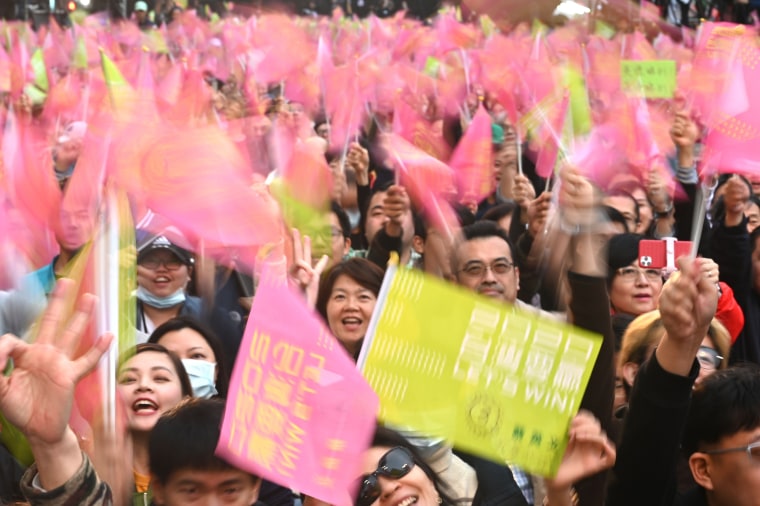TAIPEI, Taiwan — Taiwan’s independence-leaning President Tsai Ing-wen won a second term in a landslide election victory Saturday, signaling strong support for her tough stance against China.
Tsai soundly defeated Nationalist Party candidate Han Kuo-yu with 57.2% of the vote to Han’s 38.6%, with 99.75% of precincts’ votes counted. She wasted no time in warning communist-ruled China, which views Taiwan as a renegade province, not to try to use threats of force against the self-governed island.
“Today I want to once again remind the Beijing authorities that peace, parity, democracy and dialogue are the keys to stability,” Tsai said. “I want the Beijing authorities to know that democratic Taiwan and our democratically elected government will never concede to threats.”
“I hope that Beijing will show its goodwill,” she said.
Taiwan has developed its own identity since separating from China during civil war in 1949 but has never declared formal independence. Beijing still claims sovereignty over the island of 23 million people and threatens to use force to seize control if necessary.
Given China’s efforts to isolate Taiwan during Tsai’s first term, her victory will likely bring on still more deadlock and pressure from Beijing, she acknowledged.
Tsai said the results of the election proved the Taiwan people are committed to defending their democracy and way of life. Her victory will likely deepen that deadlock and ratchet up pressure from Beijing.
While Han and the Nationalist Party have said Taiwan should be more open to negotiations with China, Tsai and the Democratic Progressive Party insisted that the Hong Kong protests showed the “one country, two systems” approach Beijing has championed for governing both that former British colony and Taiwan is unworkable.
Fears of Chinese interference in Taiwan’s politics and an uptick in the economy helped Tsai regain an edge after a dire electoral setback for her Democratic Progressive Party, or DPP, 14 months ago.
A second term for Tsai is expected to draw more diplomatic, economic and military pressure from Beijing on the island, in a continuation of Chinese President Xi Jinping’s campaign to compel her administration to endorse its insistence that Taiwan is a part of China.
Tsai has refused to do so, maintaining that Beijing has no claim over Taiwan, although her government has repeatedly called for the reopening of talks between the sides without preconditions.
Since its transition to full democracy beginning in the 1980s, Taiwan has increasingly asserted its independent identity from China even though it is not recognized by the United Nations or any major nation.
